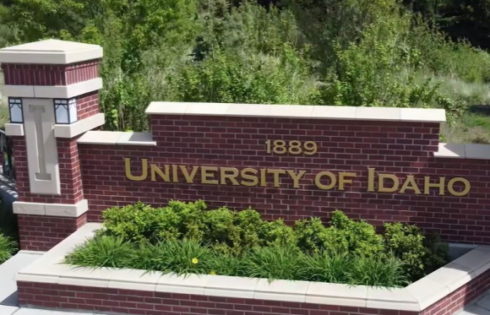
‘Campus policing is connected to broader carceral systems of policing’
Back in January, the Stanford University student paper highlighted the opinions of anti-cop academics regarding a white police-black suspect traffic stop.
A pair of campus police officers had approached a man seated in a car that was parked in a student residence lot. The officers noticed a few packages in the car, whereupon the man claimed he was a delivery driver and asked if he could leave.
The officers allowed him to do so.
However, since there had been reports of package thefts on campus, the police ran the car’s license plate. They discovered the car’s owner had an outstanding DUI arrest warrant, so they stopped the car.
When the officers ordered the driver to exit the car, he refused. It was only after one of the officers pointed his weapon at the car that the man complied. A bit later it was discovered the man wasn’t for whom the warrant was issued, but nevertheless he was cited for possession of marijuana and a missing license plate.
Student Jessica Stovall of the Graduate School of Education’s Race, Inequality and Language in Education program put out a lengthy Twitter thread about being out “taking a mind clearing walk” when she “witnessed a white police officer draw a gun on a young Black man.”
She then told The Stanford Daily that after George Floyd, she “refuse[s] to watch public lynchings.”
Stanford professor Hakeem Jefferson added that it was “hard to justify the almost default setting of an escalation that attaches to the holstering of a weapon.”
MORE: Professor rips campus cops for year-old face mask incident involving ‘Latine’ student
Well, the Daily is at it again. After an independent investigation determined the police officers acted “reasonably” and did not show signs of “bias based policing,” the paper went to the school’s Race, Inequality and Language in Education program to get a response.
 Fifth-year PhD candidate Brian Cabral (pictured) — who just happens to be a friend of Stovall — flaunted his credentials as “a trained researcher and scholar” (his dissertation is on “race, place, language, abolition, and carcerality across educational, schooling, and re-entry spaces and geographies”) to note he was “disappointed and unsurprised” by the investigation’s conclusions.
Fifth-year PhD candidate Brian Cabral (pictured) — who just happens to be a friend of Stovall — flaunted his credentials as “a trained researcher and scholar” (his dissertation is on “race, place, language, abolition, and carcerality across educational, schooling, and re-entry spaces and geographies”) to note he was “disappointed and unsurprised” by the investigation’s conclusions.
“There are biases in everything we do. It is disingenuous to claim that ‘No bias-based policing was found,'” Cabral said. “How do they define biased-based policing or non-biased-based policing? How does one in law enforcement who is ‘following protocols’ become absolved from ‘bias-based policing?’”
Cabral added that the one officer’s decision to deem the encounter “high-risk” is itself biased. “And these biases are deeply racialized,” he said. “Policing in and of itself is bias-based. There was ‘bias-based policing’ deployed” in the January incident.
Cabral poo-pooed extra trainings for campus police, saying they’re “band-aids to the harms of policing.”
“Th[is] is not what we need on Stanford’s campus. We need bold alternative commitments to our (student) safety […] campus policing is connected to broader carceral systems of policing.”
Unsurprisingly, Ms. Stovall “agreed with everything [Cabral] wrote.”
MORE: Amherst College students continue whine fest over campus cops’ unmarked cars
IMAGES: Straight 8 Photography/Shutterstock; BC/Twitter






Please join the conversation about our stories on Facebook, Twitter, Instagram, Reddit, MeWe, Rumble, Gab, Minds and Gettr.